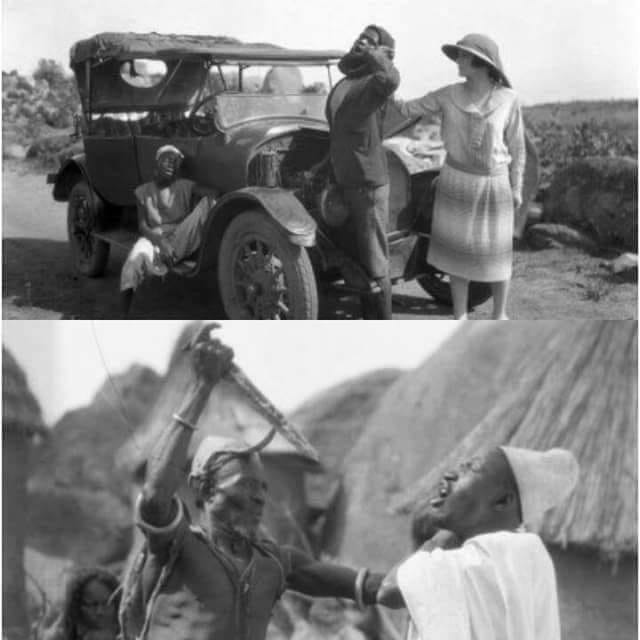
THE FIRST FILM SHOT IN NIGERIA
Filmed amongst the Sura and Ngas people of the Bauchi-Plateau in Northern Nigeria, where the rivalry between a British District Officer and a tin miner leads to war, the British film “Palaver: A Romance of Northern Nigeria" was the first film...
Filmed amongst the Sura and Ngas people of the Bauchi-Plateau in Northern Nigeria, where the rivalry between a British District Officer and a tin miner leads to war, the British film “Palaver: A Romance of Northern Nigeria" was the first film...

...shot in Nigeria in 1926 and was released to the theatres on April 24, 1927. This film was shot entirely in Northern Nigeria within a period of five months, from March to August 1926.
"Palaver" with a running time of 1 hour 18 minutes, was produced by Oscar-award-winning Geoffrey Barkas and photographed by Stanley Rodwell via local assistance by the government, who helped in providing transport and obtaining suitable pictures of native life. #HistoryVille
• • •
Missing some Tweet in this thread? You can try to
force a refresh










